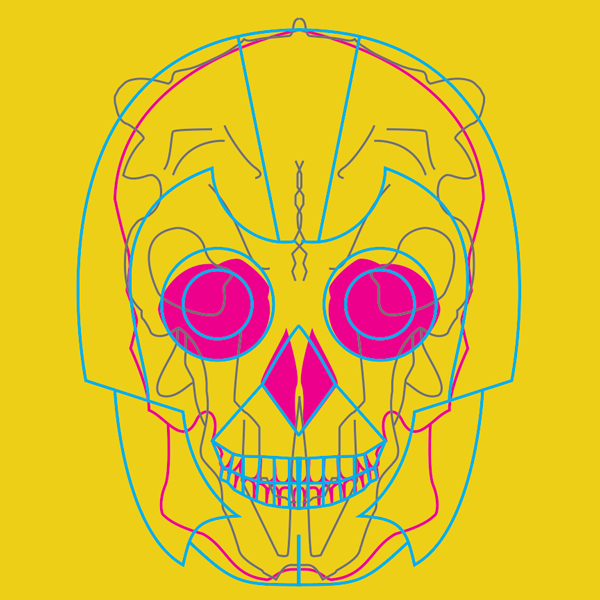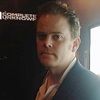An Evergreen Introduction – 081622
When I first started talking to people about picking up the newsletter again, one of my friends suggested it have a similar tone to Supercontext, the podcast I did with Charlie Bennett. To me, what made that show work was our combination of analytical reasoning with transparent honesty. That’s what I’m going to shoot for here, so it may feel like a weird peek behind the curtain into my life. I’m about to tell you how many pills I take, how neurotic I feel and why I don’t talk to my father.
It seems I already broke my word limit rule and went over 1,000 words with this edition. I’m chalking it up to this being the evergreen introduction, with more detailed information about who I am, using the framework I discussed last time. There will be five sections, each based on one tier of Abraham Maslow’s hierarchy of needs theory. Feel free to skim, jump around or read this edition in chunks. As my wife says, I'm a wordy motherfucker.
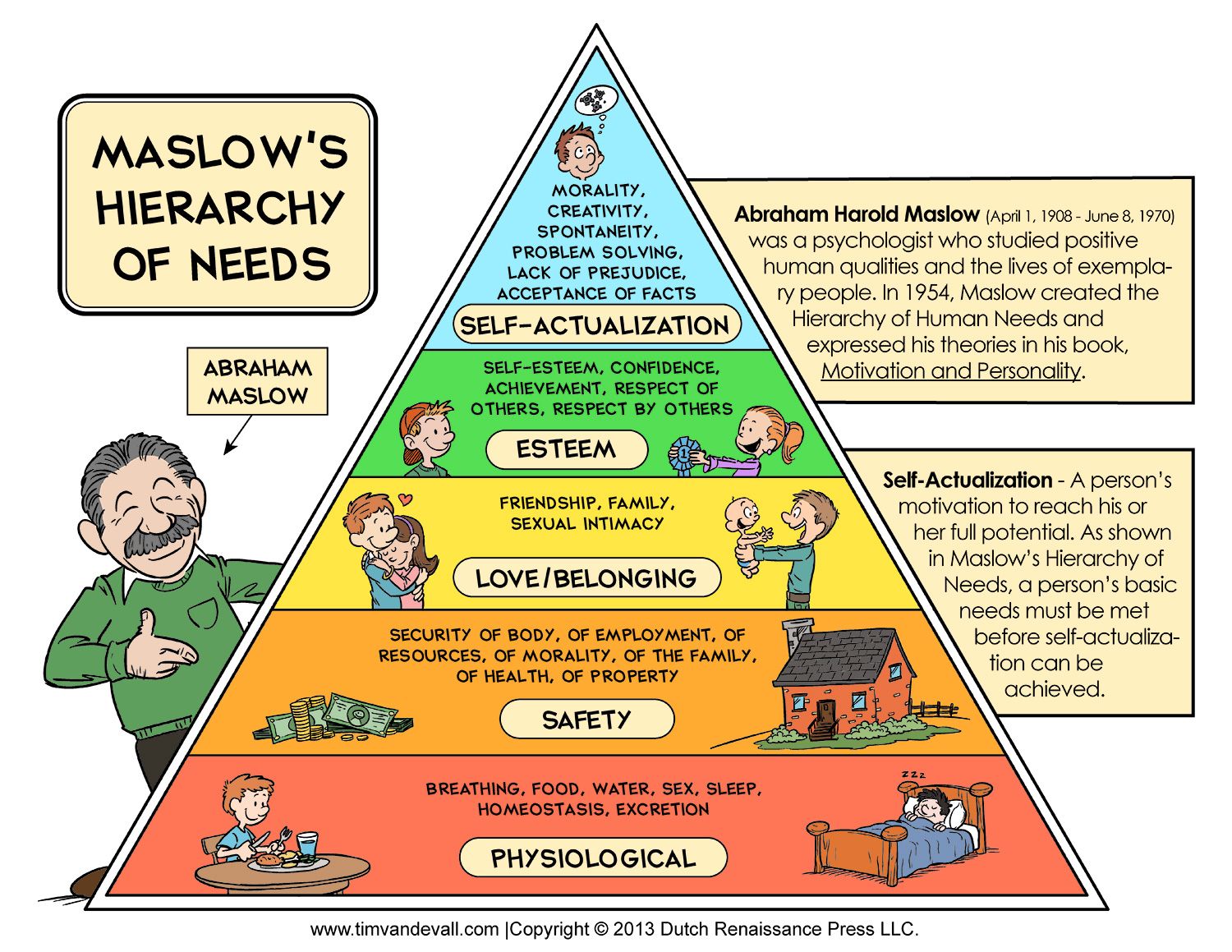
Physiological
In the last couple of years I’ve started using a classification system from Nisi Shawl and Cynthia Ward’s Writing the Other: A Practical Approach, when talking about my identity. They suggest using race, orientation, age, ability, religion, and sex/gender as categories, forming the acronym ROARRS.
I was recently in a day job committee meeting (focused on racial justice) where every member was encouraged to introduce themselves with this methodology. It was interesting to see just how awkward it made everyone feel to discuss these simple aspects of their being in public.
According to a DNA profile I am 99.9% “European” in ancestry. I think this means I’m as white as you can get, more formally referred to as caucasian. That’s not surprising, considering my waspy New England upbringing where our family claim to fame is being descended from the doctor on the Mayflower.
I identify as cisgender heterosexual, although a cabin full of 11 year old boys I was a camp counselor to in 2002 decided that I was at least “30% gay,” so who knows? Their logic for this percentage was mainly because I hung the soundtrack for Risky Business over my bunk and read Bust magazine.
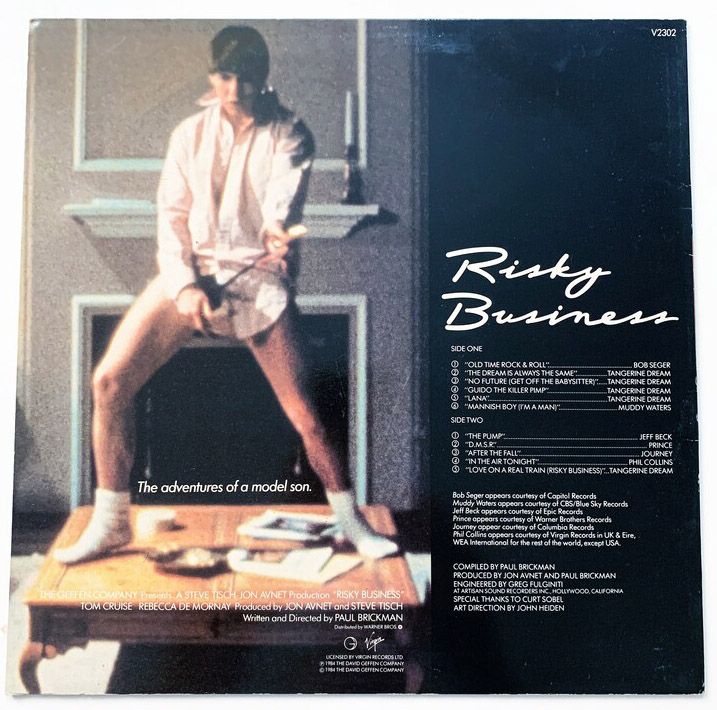
As of May I’m 45 years old. What this seems to mean is I take a lot more pills than I did 10 years ago. I’ve got pills for high blood pressure, pills for allergies and pills for depression and anxiety. I take multivitamins and an extra dose of B12 because I’m a vegetarian. And I’ve got two inhalers because I developed adult-onset asthma in my thirties.
I don’t touch alcohol or recreational drugs, mainly because my mother has substance abuse addiction and I want to avoid a similar outcome. My worst vice is probably a sweet tooth. If left on my own I’d probably resort to eating the kind of junk food that comes from a gas station.
I’ve had varying levels of exercise over the years, but the most consistent is that I practice yoga 1-2 times a week. Currently I do this through Black Widow Yoga, a virtual studio that specializes in yoga classes paired with heavy metal music. Sometimes I also go kayaking and I was just gifted an inflatable kayak that I just gave a test run in the Columbia Slough near my home.
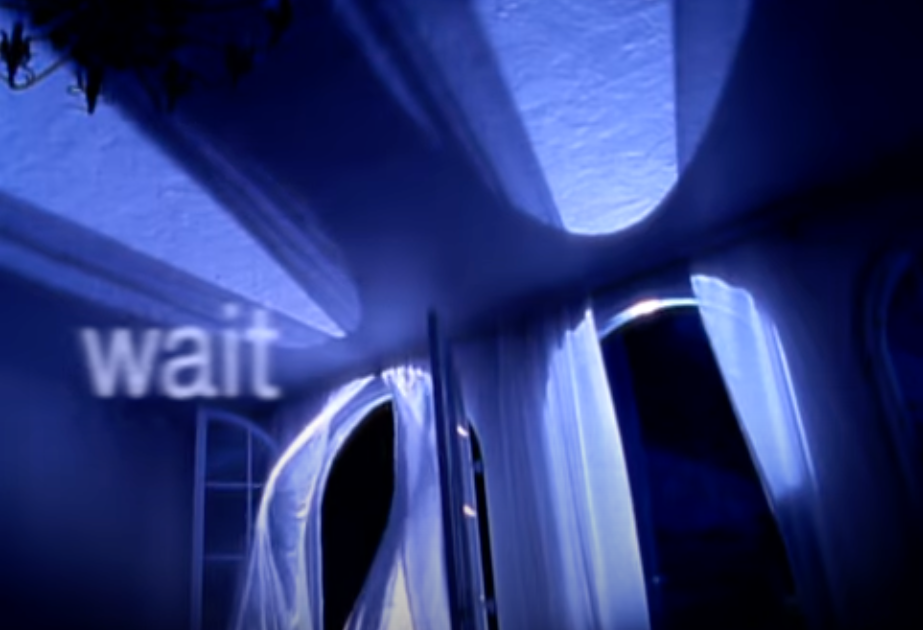
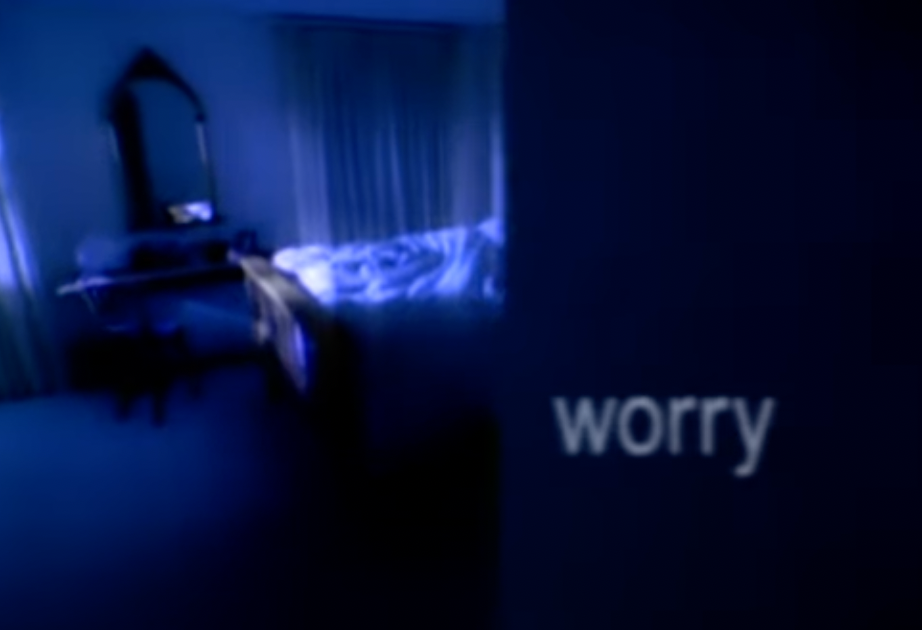
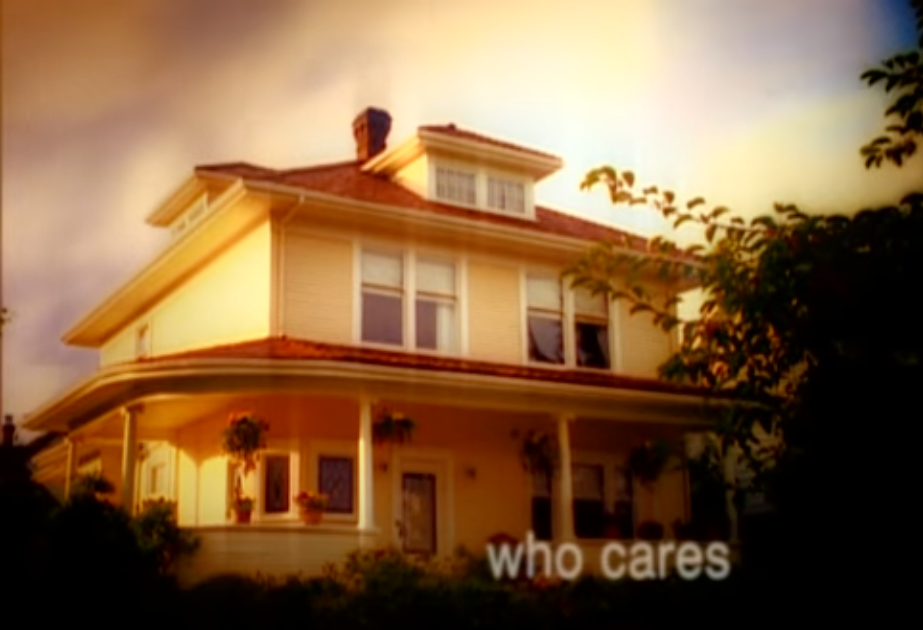
Security
One of my all time favorite television shows is Millennium. In the last couple of years I’ve increasingly identified with the first season’s opening credits, which simply state: “Wait. Worry. Who cares?” With all the disease, violence, climate change, civil liberty violations, economic collapse and pervasive discrimination we’re experiencing, it’s not easy to feel particularly safe in the world we’ve built. Oftentimes I’m reminded of a lyric Wells Tower sang in the band Hellbender: “This is our world. The one that we wanted. Decayed at its core.”
And yet, despite my anxiety about safety, I’m more secure than I’ve ever been in my adult life. I’m employed full-time at Portland State University, where I’m the Communications Manager for the School of Social Work. Previously I’ve been paid to work as a dishwasher, pantry cook, coupon designer, production artist, political campaign manager, college instructor, marketing manager, and as a writer/podcast host.
My wife and I just bought a home in St. Johns, a neighborhood of Portland, Oregon, that is close to where the Willamette and Columbia rivers converge. We moved to Portland four years ago. Before that I’ve lived in Atlanta, Boston and seacoast New Hampshire as an adult. As a child we moved around a lot and I grew up in places like New England, Singapore, Texas and Florida.
Belonging
I’ve been married to my partner Kelly for almost 10 years and we were together for 10 years before that. We live with a family of animals: two dogs (Winn and Essie) and a cat (Rowan). We don’t intend to have children. Not because either of us dislike kids, but because we recognize that we’ve got other priorities that would draw away from being good parents.
As for my family, I have limited interaction with them. I haven’t spoken to my father in ten years, mainly because of our family’s history with domestic violence. Maybe once a year my brother will reach out, but I keep my distance there as well. I talk to my mother maybe once a month. My sister is the one I’m probably the closest to and we text occasionally and try to support one another.
Religiously I’m probably what’s referred to as an agnostic. I’m skeptical about the existence of a higher power, but I don’t profess atheism. I guess I’m holding out hope for something and there have been those moments in life when it feels like there’s something greater going on behind the scenes than I understand. But I’ve never felt comfortable in any kind of organized faith.
Moving out of major metropolitan areas twice in adulthood means that I’ve lost touch with a lot of my friendships. There’s a core group that I communicate with long-distance — usually by playing role-playing games online — but locally in Portland I’m still building a sense of belonging. The pandemic made that even more difficult, but I’m starting to make new friends. And of course, the purpose of this newsletter is to build a sense of community again.
I don't know where else to put this, so I’ll add here that it’s easier for me to find connection to other human beings through art rather than in-person experiences. For me, that’s usually music or reading. You’ll probably find that I’ll often tell you about what I’m watching, reading and listening to in this newsletter. Given what I write and publish, it will unsurprisingly lean toward horror.
Here’s a fun example of my interests converging: while making the film Nope, Jordan Peele spent $1,000 of their budget on a vintage Jesus Lizard t-shirt.
Esteem
I don’t normally experience imposter syndrome. I like to think that I know what I’m skilled at and that I’m persistent about getting where I want to go next. A large part of that probably goes back to my identity as a straight, white, middle class dude. It’s rare that anyone tells people like me we can’t achieve something. My graduate training also focused on three things: being a better writer, thinking critically about the world, and having the composure to present and defend my ideas in a public space. To doubt myself is one thing, but to languish and not take action goes against the grain of what I’ve been taught.
As a podcaster I hosted and produced shows like Supercontext: An Autopsy of Media, Stuff to Blow Your Mind and BrainStuff, reaching over a million listeners. I’ve also written and published multiple comic books, including the webcomic Border Crossings, the horror anthologies Corridor and Canaan Cult Revival, and the graphic novels Think of the Children, The Cabinet, and Valley of Ashes. Several of those were crowdfunded and I’ve raised over $34,000 in total to publish them. I’m proud of these achievements. When I look back at everything I’ve done until now I see a purposeful trajectory that gives me the confidence to keep progressing further as a creative person.
But that confidence withers when I’m faced with a lack of response to my work. During the pandemic I went 17 months without a full-time job. I applied to dozens of positions and heard back from almost none of them: colleges, ad agencies, non-profits, entertainment companies, magazines, and comic book publishers alike ignored me. During that same time I successfully edited and published the first issue of Corridor magazine. But since then it’s been like pulling teeth to find reliable business partners to market, crowdfund and distribute a second issue.
Criticism I can handle. I’ve grown a pretty thick skin. But being ghosted or ignored? It drives me nuts.
Even though I’ve been employed again for over a year now, I still don’t feel like I belong to a community that values my contributions. I’m embarrassed to admit this, but it has shaken my confidence enough that I often turn to a 2019 piece by Nick Cave to remind myself that this disregard isn’t personal. It’s just the state of the world.
Is this world cruel? I don’t think so. I think this world is indifferent and indifference is not cruelty. What connects me to you, Gianelli, and you to every other sentient being in the universe, is that the universe, simply does not care about us; it does not act with malice or desire to harm us – it is simply unaffected by our condition. If one acknowledges this state of affairs, then it sets up a situation that allows us to make a simple choice – either we respond to the indifference of the universe with self-pity and narcissism – as if the world has in some way personally betrayed us – and live our lives in a cynical, pessimistic and self-serving manner; or we stand tall, set our eyes clearly upon this unfeeling universe and love it all the same – even though, or especially because, it doesn’t love us. This act of cosmic defiance, of subversive optimism, of unconditional and insubordinate love, is the greatest act of human beauty we can perform. To stand before this great, blank, heartless cosmic event and say: ‘We believe in you’. ‘We love you’. ‘We care for you’. This is the definition of grace, Gianelli, and this is the epiphany you speak of. We create our own divinity, our own Godliness, through our ferocious need. We yearn the heavens awake, and if we are quiet, in prayer or in meditation, sometimes we can feel the heavens stirring, breathing our fragile and reckless love back through us.
On good days Cave’s logic makes me feel better, but the choice that he sets up here remains my biggest personal struggle. I want to “stand tall” and I try to love the universe despite all of its flaws. But it’s fucking hard. Even just typing these words fills me with the misgiving that you, the reader, will respect me less because I’m admitting to barely keeping a stiff upper lip in the face of vast indifference.
I can recognize that this unbecoming personality trait is a result of my upbringing. In my childhood home negative attention was better than no attention, so parents and children alike tried to out-do one another’s worst behaviors. I don’t want to be like that anymore, despite our social media culture often rewarding that kind of performance. But it’s been so wired into me that it’s hard to shake it off and simply accept being ignored. I’m trying to learn to be okay with it and to take confidence in my creative work itself.
Self-Fulfillment
As Maslow defines it, the fifth tier of his hierarchy is “self-fulfillment,” where we’re motivated to reach our full potential. Before this can be achieved however, we’re supposed to meet our other basic needs first. He clarified in the 1980s however that satisfying our basic needs isn’t an “all-or-none” proposition. As you’ve seen by now, I don’t feel safe. I don’t have a sense of community. And I struggle with the indifference my achievements can be met with.
I suppose this is why I wanted to call this newsletter WICKED PROBLEMS. We’re experiencing problems both micro and macro that may be impossible to solve, so it can feel like everything is broken. What these problems have in common is that they affect us all. And as Cave said before, all of us are connected to one another.
What I know about Wicked Problems is that they can’t be solved. But there’s hope that they can be mitigated. There’s proposals to try to do this through strategic design, by being more empathetic to one another and by using abductive reasoning. Maybe those are good topics to consider for future newsletters.
Being the stubborn, pain-in-the-ass that I am, I haven’t let these problems keep me from my creativity. I’ve been working on a sci-fi horror novella this year that I hope to share with you soon. I’m 12 chapters in and about to start the book’s second act.
And despite all its frustrating setbacks, I’m still working on Corridor with my friends Ron and Mary. I don’t know if we’ll be able to pull off a second print issue this year, but we’re trying to find some kind of alternative to traditional funding and distribution.
But what about comics? Well, it wouldn’t be a Christian Sager newsletter if I didn’t cite both Nick Cave and Alan Moore in a go. A friend recently gifted me a subscription to Moore’s Maestro class on writing. At the beginning of his section on comic book writing, Moore says this:
The comics industry is a nightmarish vortex. It is one of the most voracious and kleptocratic industries in the world. Until it’s sorted itself out I would advise you to avoid it. Wait until it has proper publishers not based upon rigorously robbing every talented person that passes through their hands.
I know some find Moore cantankerous. Others find him problematic. But he’s not wrong here.
Even before hearing that I'd been leaning more into prose writing lately. I know that I'll never completely stop creating comics with people, but for now I'm trying to scale back because of how frustrating it can be. That's a shame, because the medium is amazing and there's so much potential to what can be done with it.
Resilient Gratitude
At the beginning of the pandemic my therapist shared this Ted Talk with me. Since then — whenever the world feels especially difficult — I try to list three things at the end of every day that I'm grateful for. In this newsletter I'll give you a condensed version every two weeks.
- Kayaking in the Columbia Slough
- Nemesis the Warlock
- Learning that Mike Warnke was debunked as fraud for his contributions to Satanic Panic
